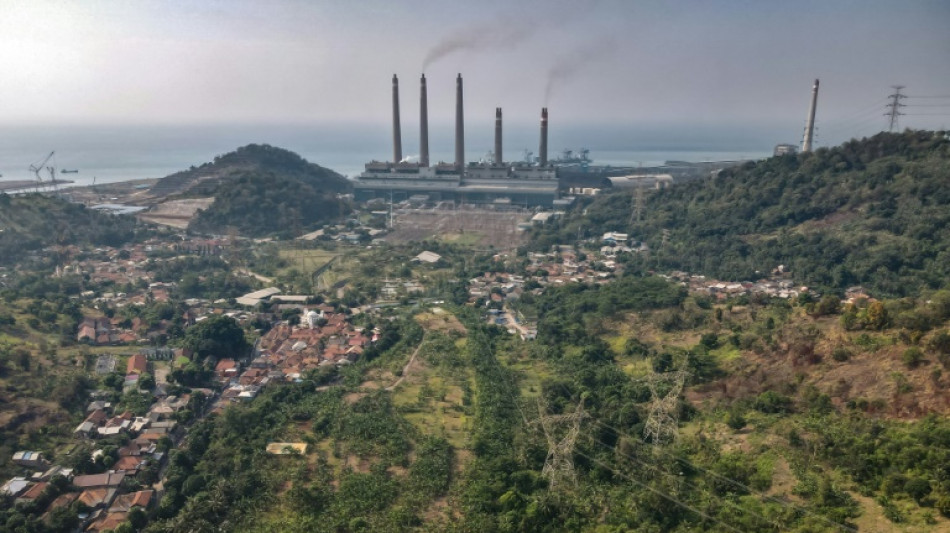
Major Indonesia coal plant back near capacity despite pollution concerns

Indonesia has restored one of the biggest coal-fired power plants in Southeast Asia to near full capacity, its operator told AFP Friday, after it was ordered to slice output to curb pollution in capital Jakarta.
The Suralaya coal-fired power plant in Java island's Banten province nearly halved production starting August 29 as the country geared up to host Southeast Asian leaders, as well as US, Chinese and Japanese officials at a regional bloc's summit.
Just ahead of the September 3-7 ASEAN talks, the megalopolis of about 30 million people was choking on smog.
Jakarta, which has been battling worsening air quality for years, topped global pollution rankings several times last month, according to Swiss air quality monitor IQAir.
Three days after the summits, Suralaya resumed production to nearly full capacity, following orders from state-owned electricity monopoly PT Perusahaan Listrik Negara (PLN), according to the plant's operator.
"Starting on September 10, we were ordered by PLN's load control centre to come back into the grid to maintain the reliability of the electrical supply," said Irwan Edi Syahputra Lubis, general manager of plant operator PT PLN Indonesia Power.
Lubis said the 3,400-megawatt plant had reduced production by 1,600 megawatts on August 29 "to contribute in improving Jakarta's air quality".
Suralaya is expected to hit full capacity again on October 5 after an overhaul of one of its eight operational units.
Lubis said pushing the plant back to full capacity was necessary to provide enough power to Java, Indonesia's most-populous island, as well as to tourist hotspot Bali.
The plant was operating 400 megawatts shy of its capacity as of Friday.
Lubis said returning to full capacity would not further pollute Jakarta's air, as the plant had "complied" with the government's emissions regulations.
But environmentalists have blamed more than half a dozen coal plants around Jakarta for the capital's worsening air, and have criticised Suralaya's continued expansion despite government pledges to stop commissioning new coal-fired power plants from this year.
Last week, a group of NGOs and locals filed a complaint to the World Bank's internal watchdog accusing it of indirectly financing Suralaya's expansion despite promises to shift to low-carbon funding.
The plant's expansion could cause thousands of premature deaths and add more than 250 million metric tons of CO2 to the atmosphere, NGO Inclusive Development International, which filed the complaint, said in a statement.
J.Sharp--TNT